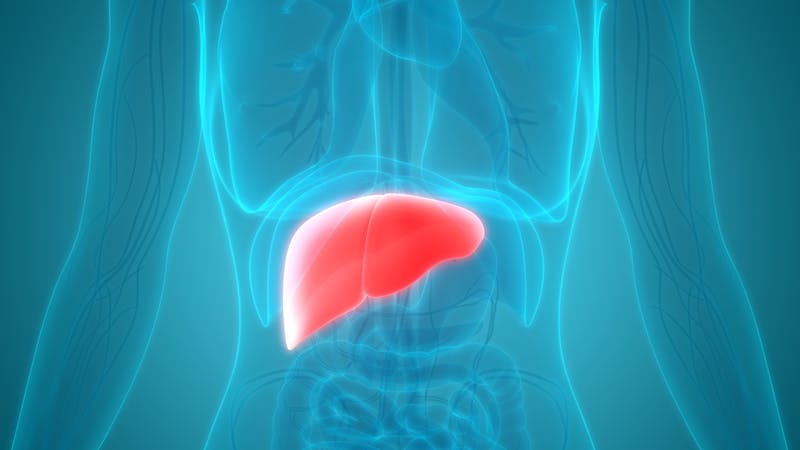Good and bad news for fatty liver
But what is the best way to treat it? Is it with drugs or by simply letting the condition take its course? Or could changing your diet be the answer?
That’s the issue that Dr. Bret Scher, Medical Director of Diet Doctor, discusses in his latest DD News video. His advice? If you have fatty liver, try a low-carb diet first.
In the video, Dr. Scher looks at two recent articles, both in the prestigious New England Journal of Medicine. One documented the dire prognosis for those with advancing fatty liver disease and the second was a randomized trial of a new medication that attempts to stop the progression of liver damage.
“The bigger question for me is why are we even discussing prognosis and medication when it is something that can be treated by lifestyle alone?” Dr. Scher asks.
Fatty liver is when fat, and then scar tissue called fibrosis, builds up in the liver and interferes with its healthy function. It goes by a few different names: nonalcoholic fatty liver disease (NAFLD) when it is just fat in the liver and, when more advanced with inflammation and scarring, nonalcoholic steatohepatitis (NASH).
Dr. Scher says using “nonalcoholic” for NAFLD and NASH to distinguish it from liver damage caused by alcohol consumption is unfortunate. That’s because the name diverts attention from the real cause of the disease: metabolic issues.
“Rather than say what it’s not, we need to say what it IS! It’s metabolic disease. It’s insulin resistance. It’s obesity and abdominal obesity. So metabolic fatty liver disease is probably a better term,” Dr. Scher says.
Even though NAFLD is becoming increasingly common, its prognosis is not yet well understood. The first NEJM article followed 1,773 individuals with NAFLD for a median of four years. Those patients in the more advanced fibrosis stages were associated with increased risks of liver-related complications and death.
New England Journal of Medicine: Prospective study of outcomes in adults with nonalcoholic fatty liver disease
The second study was a randomized control trial of a new drug to see whether it was more effective than a placebo at stopping the progression of liver damage. The study was a Phase 2 trial, which assesses a new drug’s potential effectiveness.
In the study, a total of 247 patients underwent randomization to either the new drug (called lanifibranor) or a placebo. The study found that at the highest dose, 1,200 mg a day, the progression of liver damage in patients in the treatment arm was slower than progression in the placebo arm.
But, diarrhea, nausea, peripheral edema, anemia, and weight gain occurred more frequently with lanifibranor than with placebo. The European researchers concluded that the drug should move forward to a Phase 3 trial, which studies the safety and effectiveness of the drug on a larger population with the condition.
New England Journal of Medicine: A randomized, controlled trial of the pan-PPAR agonist lanifibranor in NASH
Dr. Scher points out, however, “fatty liver is a completely preventable and treatable condition with dietary and lifestyle choices. Why are we focusing time and money on drugs instead of lifestyle?”
For more information about fatty liver disease, and how to reverse it with your diet, check out our evidence based guide.
Diet Doctor: Fatty liver disease and keto: 5 things you need to know
Twice each week, Dr. Scher takes one or more scientific studies in the fields of nutrition, exercise, health, or disease and carefully analyses the researchers’ methods and findings. In doing so, he helps you better understand how to judge the quality of various research papers and make informed decisions about your own health and wellness.
You can find more of Dr. Scher’s news videos on the Diet Doctor Youtube Channel. Subscribe to the feed so that you don’t miss any of his videos.
Subscribe to our Youtube channelFor more information on fatty liver, or how to use a low-carb diet or reverse metabolic issues like insulin resistance, please check out our other guides:


